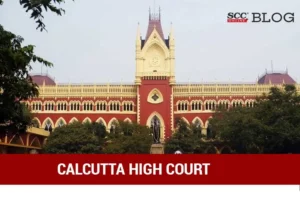Calcutta High Court: In a writ petition challenging the petitioner’s excommunication from the from the Agrahari Sikh Community violating his fundamental rights under Article 21 of the Constitution of India, a single-judge bench comprising of Sabyasachi Bhattacharyya, J., allowed the writ petition, setting aside the excommunication notice and quashing the Gurudwara’s decision. The Court restrained the respondents from future excommunication and ordered the respondents 8 to 10 to individually pay Rs. 50,000 each as compensation to the petitioner for the trauma suffered.
In the instant matter, the petitioner, a member of the Agrahari Sikh Community and affiliated with Gurudwara Chhota Sikh Sangat in Calcutta, was excommunicated by the Office Bearers of the Gurudwara through a decision dated 19-09-2023. The grounds for excommunication were a matrimonial dispute involving the petitioner’s son, with the Gurudwara citing “roti beti kaa sambandh samapt kia jata hai” (termination of the relationship of bread and daughter), indicating a complete severance of connections with the petitioner. The petitioner approached the writ court, contending a violation of his fundamental rights under Article 21 of the Constitution of India. The petitioner argued that the impugned excommunication violated his fundamental right to life with dignity. However, respondent 8 and 10 justified the excommunication based on the petitioner’s alleged failure to respond to communications and the complaint from the daughter-in-law’s brother.
The main issues in the instant matter, is maintainability of the writ petition, considering the usual jurisdiction of a civil court over matters related to religious or other offices and whether the petitioner’s excommunication constitutes a violation of his fundamental right to live a life of dignity.
The Court acknowledged the limited scope of the writ petition and proceeded to hear the matter without further documents or affidavits. The Court held that the issue of maintainability is distinct due to the constitutional dimension of the petitioner’s claim. The Court emphasised that none of the allegations in the writ petition were admitted by the respondents. The Court rejected the contention of the respondents, stating that the petitioner couldn’t be held responsible for the matrimonial dispute between his son and daughter-in-law.
“It is entirely within the domain of the civil court to decide, if brought to it, a matrimonial dispute in accordance with law, which has nothing to do with any role to be played by the father of one of the spouses.”
The Court stated that “the Gurudwara may provide religious guidance and leadership to its members, but the reason cited for the excommunication has nothing to do with religion.” The Court observed that the excommunication, affecting social, religious, and economic aspects, was deemed a violation of the petitioner’s constitutional rights. The Court held that the issue went beyond the contravention of legal rights and was a blatant violation of the petitioner’s right to live with dignity.
The Court held that the Gurudwara’s extreme step of excommunicating the petitioner was violative of Article 21 of the Constitution of India and set aside the notice of excommunication. The respondents were restrained from taking any future steps to excommunicate the petitioner on the same ground. The Court ordered the respondents to individually pay costs of Rs. 50,000 each to the petitioner, totaling Rs. 1,50,000, within a fortnight.
[Sardar Lalu Singh v. State of W.B., 2024 SCC OnLine Cal 604, order dated 22-01-2024]
Advocates who appeared in this case:
Mr. Shuvasish Sengupta, Mr. Abhrajit Roy Chowdhury, Counsel for the Petitioner
Mr. Anirban Ray, Sk. Md. Galib, Ms. Sujata Mukherjee, Counsel for the State
Mrs. Pampa Dey Dhabal, Ms. Sangita Banerjee Chakraborty, Counsel for the Respondent 8 and 10

